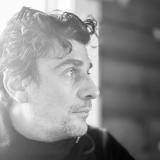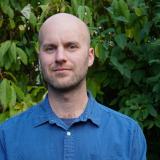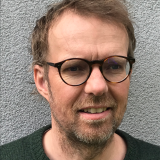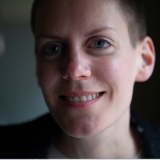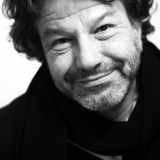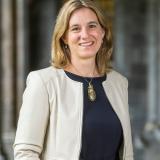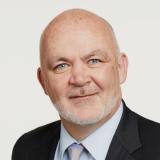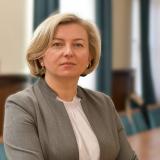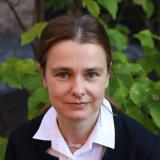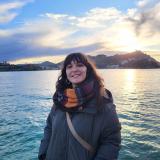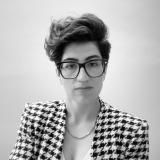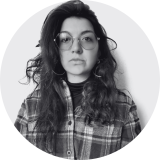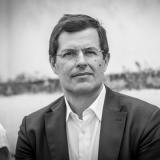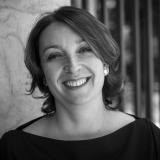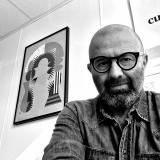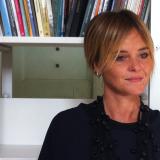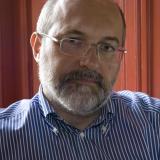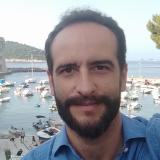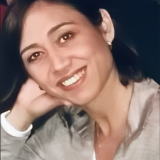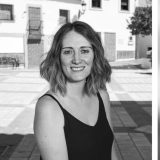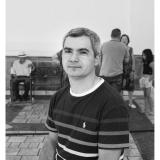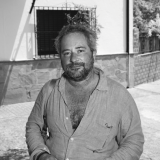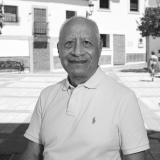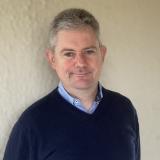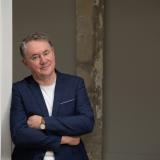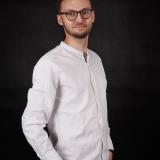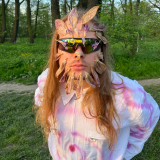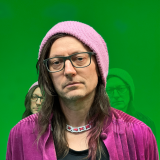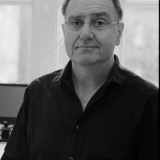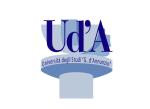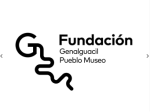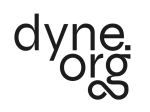
Description
NORWEGIAN UNIVERSITY OF SCIENCE AND TECHNOLOGY (NTNU) is not only one of the largest technical universities in Northern Europe but also covers all 13 sectors of the CCIs in educational programs across all faculties. The university hosts an excellence cluster in entrepreneurship and leads countless initiatives in innovation, start-up culture and cross-disciplinary collaboration. NTNU has a strong background in art and technology alliances, as well as longstanding experience and capacities in coordinating ambitious research projects across all faculties. NTNU joined the New European Bauhaus as an official partner as early as March 2021. Most recently, NTNU’s Faculty of Architecture and Design coordinates three consortia in NEB related Horizon Europe projects. NTNU is one of the founding partners of EIT Culture & Creativity, spearheading an alliance across the Norwegian CCI ecosystem. As the coordinator of [PACESETTERS] NTNU will lead WP5: Project management and coordination. With its manifold capacities, ranging from green technologies to the social sciences, entrepreneurial training and across fine art and performing arts, NTNU will contribute extensively and intensively to the research capacities of [PACESETTERS].
NORWEGIAN UNIVERSITY OF SCIENCE AND TECHNOLOGY (NTNU) is not only one of the largest technical universities in Northern Europe but also covers all 13 sectors of the CCIs in educational programs across all faculties. The university hosts an excellence cluster in entrepreneurship and leads countless initiatives in innovation, start-up culture and cross-disciplinary collaboration. NTNU has a strong background in art and technology alliances, as well as longstanding experience and capacities in coordinating ambitious research projects across all faculties. NTNU joined the New European Bauhaus as an official partner as early as March 2021. Most recently, NTNU’s Faculty of Architecture and Design coordinates three consortia in NEB related Horizon Europe projects. NTNU is one of the founding partners of EIT Culture & Creativity, spearheading an alliance across the Norwegian CCI ecosystem. As the coordinator of [PACESETTERS] NTNU will lead WP5: Project management and coordination. With its manifold capacities, ranging from green technologies to the social sciences, entrepreneurial training and across fine art and performing arts, NTNU will contribute extensively and intensively to the research capacities of [PACESETTERS].

Description
NATIONAL UNIVERSITY OF IRELAND GALWAY (GALWAY) is the leading Irish university for collaboration and research in the creative economy, with globally recognised programmes in performance, creative writing and film, as well as specialised research centres that address urban and rural contexts, creative technologies, and exploring arts/sciences interfaces. It has extensive international partnerships with top-tier research universities at every scale, and it manages projects worth approximately €100M in direct research costs per annum, with a fully elaborated research and innovation system, including robust internal controls as well as dedicated structures (including catalysts and incubators) for managing engagement with civil society, enterprise, and all levels of government. In [PACESETTERS], GALWAY will bring its experience with creative clusters and economies, as well as its relationships to R&I to lead WP1.
NATIONAL UNIVERSITY OF IRELAND GALWAY (GALWAY) is the leading Irish university for collaboration and research in the creative economy, with globally recognised programmes in performance, creative writing and film, as well as specialised research centres that address urban and rural contexts, creative technologies, and exploring arts/sciences interfaces. It has extensive international partnerships with top-tier research universities at every scale, and it manages projects worth approximately €100M in direct research costs per annum, with a fully elaborated research and innovation system, including robust internal controls as well as dedicated structures (including catalysts and incubators) for managing engagement with civil society, enterprise, and all levels of government. In [PACESETTERS], GALWAY will bring its experience with creative clusters and economies, as well as its relationships to R&I to lead WP1.
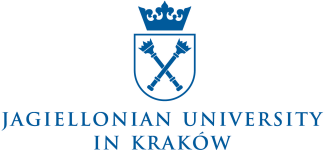
Description
UNIWERSYTET JAGIELLONSKI The Jagiellonian University funded in 1364 is the oldest higher education institution in Poland and one of the oldest in Europe. The University as well as some of its prominent scholars and alumni are an important part of European cultural and scientific heritage. As part of UNA EUROPA and largest polish university, JU have great impact on students — young Europeans. Moreover, situated in European Creative City of Literature, JU have meaning on storytelling and network of cooperation in sector of publishing and media. With research and knowledge on cultural policy, covering S3 regional and national schemes, and expertise on green filmmaking and eco-consultancy, JU can support innovative businesses to drive a sustainable climate transition. JU will also contribute to [PACESETTERS] research methodology with their experience with Participatory Action Research engaging communities and actors in the CCI.
UNIWERSYTET JAGIELLONSKI The Jagiellonian University funded in 1364 is the oldest higher education institution in Poland and one of the oldest in Europe. The University as well as some of its prominent scholars and alumni are an important part of European cultural and scientific heritage. As part of UNA EUROPA and largest polish university, JU have great impact on students — young Europeans. Moreover, situated in European Creative City of Literature, JU have meaning on storytelling and network of cooperation in sector of publishing and media. With research and knowledge on cultural policy, covering S3 regional and national schemes, and expertise on green filmmaking and eco-consultancy, JU can support innovative businesses to drive a sustainable climate transition. JU will also contribute to [PACESETTERS] research methodology with their experience with Participatory Action Research engaging communities and actors in the CCI.

Description
EUROPEAN CREATIVE BUSINESS NETWORK (ECBN) is a diverse network of over 180 CCI-oriented organisations active throughout the EU and beyond — all membership-based networks or stakeholders, with reaches of up to 40.000, encompassing nearly 250.000 creative professionals. ECBN maintains a registry of roughly 2.000 CCI-oriented entities, and its combined communications — social media, webinars, seminars, and meetings like the annual European Creative Industries Summit — reach over 1.8 million people. As part of the Leader Group for the “Pact For skills”, ECBN enables a large-scale partnership of the CCI sector to develop a unified vision for upskilling and reskilling creative talent. In [PACESETTERS], ECBN will contribute hands-on business expertise across all work packages and lead WP4 Multiplication and Dissemination.
EUROPEAN CREATIVE BUSINESS NETWORK (ECBN) is a diverse network of over 180 CCI-oriented organisations active throughout the EU and beyond — all membership-based networks or stakeholders, with reaches of up to 40.000, encompassing nearly 250.000 creative professionals. ECBN maintains a registry of roughly 2.000 CCI-oriented entities, and its combined communications — social media, webinars, seminars, and meetings like the annual European Creative Industries Summit — reach over 1.8 million people. As part of the Leader Group for the “Pact For skills”, ECBN enables a large-scale partnership of the CCI sector to develop a unified vision for upskilling and reskilling creative talent. In [PACESETTERS], ECBN will contribute hands-on business expertise across all work packages and lead WP4 Multiplication and Dissemination.

Description
T6 ECOSYSTEMS S.R.L. (T6) is a research and consulting SME with an interdisciplinary team devoted to applied research and bringing R&I results to society and maximizing their positive impacts. Since FP7 T6 have been involved in projects related to the Creative and Cultural sector. In H2020 we are partner of the Starts initiative (Innovation at the nexus of Science, Technology, and the ARTS), the STARTS Residency programme and partner of the S+T+ART Prize project. T6 has a specific competence in developing policy recommendation and development have been at the core of T6 activity in the media and publishing domain. Policy dialogues, surveys, online platform discussions, multi-stakeholder forums, High level expert groups setup have been used to draft policy recommendation that has reached the level of amendment presented at European Level at European Parliament directive discussion. In PACESETTERS, T6 will lead WP3 Evaluation and support frameworks.
T6 ECOSYSTEMS S.R.L. (T6) is a research and consulting SME with an interdisciplinary team devoted to applied research and bringing R&I results to society and maximizing their positive impacts. Since FP7 T6 have been involved in projects related to the Creative and Cultural sector. In H2020 we are partner of the Starts initiative (Innovation at the nexus of Science, Technology, and the ARTS), the STARTS Residency programme and partner of the S+T+ART Prize project. T6 has a specific competence in developing policy recommendation and development have been at the core of T6 activity in the media and publishing domain. Policy dialogues, surveys, online platform discussions, multi-stakeholder forums, High level expert groups setup have been used to draft policy recommendation that has reached the level of amendment presented at European Level at European Parliament directive discussion. In PACESETTERS, T6 will lead WP3 Evaluation and support frameworks.
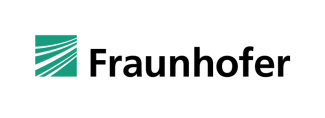
Description
FRAUNHOFER GESELLSCHAFT (FHG) is Europe’s largest organisation of applied research, with 75 institutes, 29.000 employees, and annual budget of €2.8B. Of these institutes, 22 operate in the field of cultural heritage research and creative industry. This includes development of strategies methodologies and advanced materials for protecting cultural objects and sites from climate change. Fraunhofer is deeply engaged in implementing sustainability criteria into operational procedures and the green transitioning of industrial sectors. Fraunhofer was the first research organisation in Europe to deliver a sustainability report (2013) with a special focus on climate adaption. Fraunhofer would like to bring this experience into the CCI sector. Fraunhofer is dealing with cultural heritage issues at all levels, from working with primary researchers to the EU’s political level; the reach of its professional networks is deep, broad, and global. It has extensive experience organizing and/or coordinating EU cultural heritage–related projects, notably Climate for Culture, the first large scale research project on climate change impacts on cultural heritage. Furthermore, Johanna Leissner from FHG is the chair of the EU OMC Expert Group of Member States on Strengthening cultural heritage for climate change in PACESETTERS, FRAUNHOFER will contribute their expertise on implementation of sustainability strategies, climate change and cultural heritage.
FRAUNHOFER GESELLSCHAFT (FHG) is Europe’s largest organisation of applied research, with 75 institutes, 29.000 employees, and annual budget of €2.8B. Of these institutes, 22 operate in the field of cultural heritage research and creative industry. This includes development of strategies methodologies and advanced materials for protecting cultural objects and sites from climate change. Fraunhofer is deeply engaged in implementing sustainability criteria into operational procedures and the green transitioning of industrial sectors. Fraunhofer was the first research organisation in Europe to deliver a sustainability report (2013) with a special focus on climate adaption. Fraunhofer would like to bring this experience into the CCI sector. Fraunhofer is dealing with cultural heritage issues at all levels, from working with primary researchers to the EU’s political level; the reach of its professional networks is deep, broad, and global. It has extensive experience organizing and/or coordinating EU cultural heritage–related projects, notably Climate for Culture, the first large scale research project on climate change impacts on cultural heritage. Furthermore, Johanna Leissner from FHG is the chair of the EU OMC Expert Group of Member States on Strengthening cultural heritage for climate change in PACESETTERS, FRAUNHOFER will contribute their expertise on implementation of sustainability strategies, climate change and cultural heritage.

Description
UNIVERSITY OF CAMBRIDGE The Climate Change Policy Group at the University of Cambridge will contribute with their research and expertise on climate policy and science communication, ensuring that the project outcome is relevant and contributes to achieving climate policy goals. With their research on (just) transitions to a low-carbon economy and on climate policy UCAM can support innovative businesses to drive a sustainable climate transition. The Climate Change Policy Group can help with exploring how preparing the European CCIs can adapt to and contribute to the climate transition by providing in depth understanding of pathways and policies leading to a low carbon transition/transformation of societies and on relevant intervention points. The Group director, Dr Annela Anger-Kraavi has in addition to research experience also 13 years of experience in international and EU climate policy making and negotiation processes. She will build on this experience and her wide stakeholder network throughout the project including in co-creation, dissemination and exploitation.
UNIVERSITY OF CAMBRIDGE The Climate Change Policy Group at the University of Cambridge will contribute with their research and expertise on climate policy and science communication, ensuring that the project outcome is relevant and contributes to achieving climate policy goals. With their research on (just) transitions to a low-carbon economy and on climate policy UCAM can support innovative businesses to drive a sustainable climate transition. The Climate Change Policy Group can help with exploring how preparing the European CCIs can adapt to and contribute to the climate transition by providing in depth understanding of pathways and policies leading to a low carbon transition/transformation of societies and on relevant intervention points. The Group director, Dr Annela Anger-Kraavi has in addition to research experience also 13 years of experience in international and EU climate policy making and negotiation processes. She will build on this experience and her wide stakeholder network throughout the project including in co-creation, dissemination and exploitation.
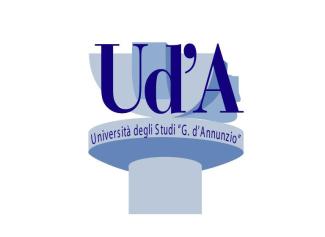
Description
UNIVERSITÀ DEGLI STUDI G.D'ANNUNZIO CHIETI PESCARA Ud’A is a research university with strong competences in trans-disciplinary evaluation of the impacts of cultural and creative production and participation. Ud’A can contribute to increase the understanding of the challenges and opportunities for the CCIs in relation to a sustainable climate transition with research on the attitudes and behaviour changes of all key stakeholders and of citizens towards key topics and dilemmas concerning the climate transition: circular economy, energy and resource saving, responsible mobility, just to name a few. Ud’A can provide research and knowledge on behavioural change assessment and quantification of its social and economic effects to support innovative businesses to drive a sustainable climate transition. By providing creative and cultural actors with a toolbox of sophisticated techniques to assess the effectiveness of policy interventions and cultural projects Ud’A can help preparing the European CCIs to adapt to and contribute to the climate transition.
UNIVERSITÀ DEGLI STUDI G.D'ANNUNZIO CHIETI PESCARA Ud’A is a research university with strong competences in trans-disciplinary evaluation of the impacts of cultural and creative production and participation. Ud’A can contribute to increase the understanding of the challenges and opportunities for the CCIs in relation to a sustainable climate transition with research on the attitudes and behaviour changes of all key stakeholders and of citizens towards key topics and dilemmas concerning the climate transition: circular economy, energy and resource saving, responsible mobility, just to name a few. Ud’A can provide research and knowledge on behavioural change assessment and quantification of its social and economic effects to support innovative businesses to drive a sustainable climate transition. By providing creative and cultural actors with a toolbox of sophisticated techniques to assess the effectiveness of policy interventions and cultural projects Ud’A can help preparing the European CCIs to adapt to and contribute to the climate transition.
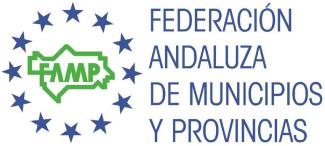
Description
FEDERACIÓN ANDALUZA DE MUNICIPIOS Y PROVINCIAS (FAMP) The Federación Andaluza de Municipios y Provincias, is a non-profit organization constituted in March 1985, and nowadays has more than 780 affiliated local bodies. FAMP is an association of local governments in Andalucía and, as such, it represents most municipalities in Andalucía (more than 95%), as well as other local authorities (Provincial Councils and commonwealths). FAMP has established a Municipal Observatory for the transition to the Circular Economy OMECA, to guide all the municipalities in the region on the path towards a more sustainable economy. Two years ago, FAMP launched the Andalucía Green Deal Committee, which leads the process of defining, developing and activating projects of value, applicable to all types of municipalities. FAMP can inspire the design of public policies and resources that are committed to helping CCIs prepare to adapt and also to invest in this space that allows sustainability and the growth of social innovation in favour of equal opportunities and social and territorial cohesion. In [PACESETTERS] FAMP focuses on the real-world laboratory in Valle de Genal (T2.2).
FEDERACIÓN ANDALUZA DE MUNICIPIOS Y PROVINCIAS (FAMP) The Federación Andaluza de Municipios y Provincias, is a non-profit organization constituted in March 1985, and nowadays has more than 780 affiliated local bodies. FAMP is an association of local governments in Andalucía and, as such, it represents most municipalities in Andalucía (more than 95%), as well as other local authorities (Provincial Councils and commonwealths). FAMP has established a Municipal Observatory for the transition to the Circular Economy OMECA, to guide all the municipalities in the region on the path towards a more sustainable economy. Two years ago, FAMP launched the Andalucía Green Deal Committee, which leads the process of defining, developing and activating projects of value, applicable to all types of municipalities. FAMP can inspire the design of public policies and resources that are committed to helping CCIs prepare to adapt and also to invest in this space that allows sustainability and the growth of social innovation in favour of equal opportunities and social and territorial cohesion. In [PACESETTERS] FAMP focuses on the real-world laboratory in Valle de Genal (T2.2).
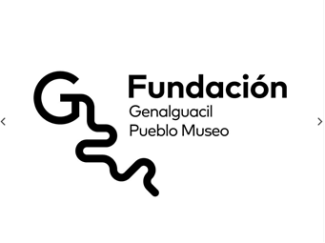
Description
For 30 years FUNDACIÓN GENALGUACIL PUEBLO MUSEO (FGPM) has been situating and co-creating programs to mobilise creative production to drive equitable societal transformation. Located in the Municipality of Genalguacil, a remote and rural community of 471 inhabitants, in the Valle del Genal, Spain, it offers a microcosm of complexity and the interrelations of the human and non-human and a sample for research and the process of complex transformation. FGPM is an open-source studio and museum and actively engages citizens from artists and artisans to civil servants. It is a learning by doing space that is ground in turning challenges into opportunities. FGPM programs foster cooperation, situate production and share experience — to drive a collective process of change through art, nature, tradition and culture. As such FGPM has a live portfolio of actives and examples — that demonstrate how CCIs can be part of turning challenges into opportunities for a sustainable climate transition. In [PACESETTERS] FGPM leads task T2.2.
For 30 years FUNDACIÓN GENALGUACIL PUEBLO MUSEO (FGPM) has been situating and co-creating programs to mobilise creative production to drive equitable societal transformation. Located in the Municipality of Genalguacil, a remote and rural community of 471 inhabitants, in the Valle del Genal, Spain, it offers a microcosm of complexity and the interrelations of the human and non-human and a sample for research and the process of complex transformation. FGPM is an open-source studio and museum and actively engages citizens from artists and artisans to civil servants. It is a learning by doing space that is ground in turning challenges into opportunities. FGPM programs foster cooperation, situate production and share experience — to drive a collective process of change through art, nature, tradition and culture. As such FGPM has a live portfolio of actives and examples — that demonstrate how CCIs can be part of turning challenges into opportunities for a sustainable climate transition. In [PACESETTERS] FGPM leads task T2.2.
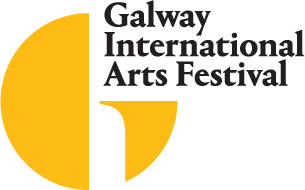
Description
GALWAY INTERNATIONAL ARTS FESTIVAL (GIAF): Founded in 1978, Galway International Arts Festiva has grown into an event with a major reputation where, in 2022, there were 300,000 attendances at over 200 performances, talks and exhibitions in 30 venues over 14 days. The Arts Festival is a two-week event held in summer in a city of 84,000 in the most westerly region of Europe. GIAF exemplifies the principle of creative first. It was established by a group of artists, fledgling as well as experienced, who dreamed of bringing world-class artists to Ireland, while also supporting Irish artists and showcasing their work on the world stage, creating unique and wonderful experiences for all. GIAF leads task T2.3.
GALWAY INTERNATIONAL ARTS FESTIVAL (GIAF): Founded in 1978, Galway International Arts Festiva has grown into an event with a major reputation where, in 2022, there were 300,000 attendances at over 200 performances, talks and exhibitions in 30 venues over 14 days. The Arts Festival is a two-week event held in summer in a city of 84,000 in the most westerly region of Europe. GIAF exemplifies the principle of creative first. It was established by a group of artists, fledgling as well as experienced, who dreamed of bringing world-class artists to Ireland, while also supporting Irish artists and showcasing their work on the world stage, creating unique and wonderful experiences for all. GIAF leads task T2.3.

Description
OŚRODEK KULTURY IM. C. K. NORWIDA (OKN): Located in the Nowa Huta district in Krakow, OKN is a fully equipped cultural centre with a long history and legacy tracing back to the beginnings of Nowa Huta. It can be used as meeting place, for presentations and workshops. The buildings accommodate facilities such as a cinema, a gallery, a library, a hall with a theatre stage, offices, art workshops, gallery, audio and video recording studio, as well as a large hall for 300 people, offices, and a garden. OKN leads task T2.4
OŚRODEK KULTURY IM. C. K. NORWIDA (OKN): Located in the Nowa Huta district in Krakow, OKN is a fully equipped cultural centre with a long history and legacy tracing back to the beginnings of Nowa Huta. It can be used as meeting place, for presentations and workshops. The buildings accommodate facilities such as a cinema, a gallery, a library, a hall with a theatre stage, offices, art workshops, gallery, audio and video recording studio, as well as a large hall for 300 people, offices, and a garden. OKN leads task T2.4

Description
AKADEMIA SZTUK PIĘKNYCH IM. JANA MATEJKI W KRAKOWIE (ASP): founded in 1818 is the oldest art academy in Poland. It hosts #StreamArtStudio and UKRAiNATV – an experimental research and performative hub, collective and cross-sectoral project in the field of media culture, hybrid togetherness and stream-art (as a new, original field of expression, didactic and research). It deals with new relational strategies, pop-up audio-visual production and dynamic circulations of signals in virtual productions. It is an Internet TV station specialized in building live audio-visual bridges, a multi-channel streaming hub, recording studio and “glocal” network, and last but not least a group of people. It is an open, international collective, crew of artists, media freaks, activists, researchers, musicians and DJs from Ukraine, Poland, Belarus, Italy and multiple other countries – persons in-needs, refugees, nomadic artists, techno freaks, expats and migrants that do not feel safe to express themselves freely in their own country or states (taking this term in all meanings) and who are finding new opportunities in these experimental frames. In [PACESETTERS] ASP and UKRAiNATV will contribute to task T2.4, and to the implementation of the ambitious communication and dissemination strategy.
AKADEMIA SZTUK PIĘKNYCH IM. JANA MATEJKI W KRAKOWIE (ASP): founded in 1818 is the oldest art academy in Poland. It hosts #StreamArtStudio and UKRAiNATV – an experimental research and performative hub, collective and cross-sectoral project in the field of media culture, hybrid togetherness and stream-art (as a new, original field of expression, didactic and research). It deals with new relational strategies, pop-up audio-visual production and dynamic circulations of signals in virtual productions. It is an Internet TV station specialized in building live audio-visual bridges, a multi-channel streaming hub, recording studio and “glocal” network, and last but not least a group of people. It is an open, international collective, crew of artists, media freaks, activists, researchers, musicians and DJs from Ukraine, Poland, Belarus, Italy and multiple other countries – persons in-needs, refugees, nomadic artists, techno freaks, expats and migrants that do not feel safe to express themselves freely in their own country or states (taking this term in all meanings) and who are finding new opportunities in these experimental frames. In [PACESETTERS] ASP and UKRAiNATV will contribute to task T2.4, and to the implementation of the ambitious communication and dissemination strategy.
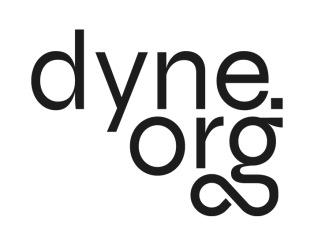
Description
DYNE.ORG (DYNE) is a non-profit free software foundry with almost 20 years of expertise in developing applications used worldwide. DYNE facilitates artists, creatives, and engaged citizens in the digital age, sharing tools, practices, documentation, and narratives for community empowerment. Its unusually diverse international user base includes artists, broadcasters, filmmakers, activists, educators, and healthcare providers. In PACESETTERS DYNE coordinates the technological development and leads task T3.5
DYNE.ORG (DYNE) is a non-profit free software foundry with almost 20 years of expertise in developing applications used worldwide. DYNE facilitates artists, creatives, and engaged citizens in the digital age, sharing tools, practices, documentation, and narratives for community empowerment. Its unusually diverse international user base includes artists, broadcasters, filmmakers, activists, educators, and healthcare providers. In PACESETTERS DYNE coordinates the technological development and leads task T3.5

Description
The mission of EIT Culture & Creativity is to support innovations so that CCSI can become a game changer for green, digital and social transition. It does so by cross-fertizilation of the next level, not only across sectors, but cross-national, cross-disciplines, cross-administrations, policy silos and across education, business and research. An example: It provides the largest tech transfer network in Europe for CCSI with leading RTOs, such as RI.SE, eurecat, technalia, Fraunhofer and CNR. More specifically EIT Culture & Creativity collaborates with EIT Climate to leverage the impact of CCSI for NetZeroCities, to this end 10 pilot cities are identified in 2023 to run pilots in 2024. The EIT Culture & Creativity and [PACESETTER] can build on this and have an immediate concrete impact. The EIT Culture & Creativity Policy Club is the flagship initiative to bring together around 500 policy makers in cities and regions and nations who are driving and implementing innovative frameworks and regulations and procurement in CCSI - with a special focus on the green transition. This will also leverage and support [PACESETTER].
The mission of EIT Culture & Creativity is to support innovations so that CCSI can become a game changer for green, digital and social transition. It does so by cross-fertizilation of the next level, not only across sectors, but cross-national, cross-disciplines, cross-administrations, policy silos and across education, business and research. An example: It provides the largest tech transfer network in Europe for CCSI with leading RTOs, such as RI.SE, eurecat, technalia, Fraunhofer and CNR. More specifically EIT Culture & Creativity collaborates with EIT Climate to leverage the impact of CCSI for NetZeroCities, to this end 10 pilot cities are identified in 2023 to run pilots in 2024. The EIT Culture & Creativity and [PACESETTER] can build on this and have an immediate concrete impact. The EIT Culture & Creativity Policy Club is the flagship initiative to bring together around 500 policy makers in cities and regions and nations who are driving and implementing innovative frameworks and regulations and procurement in CCSI - with a special focus on the green transition. This will also leverage and support [PACESETTER].



